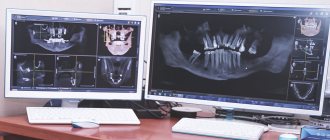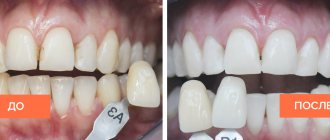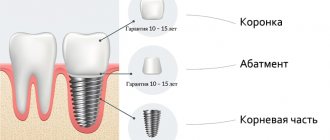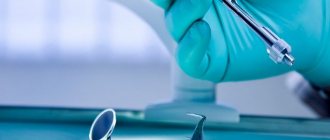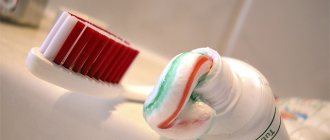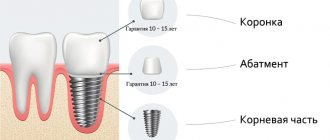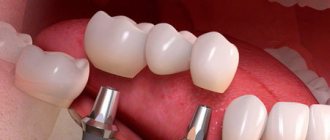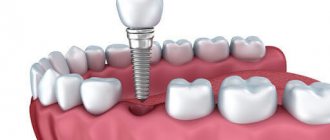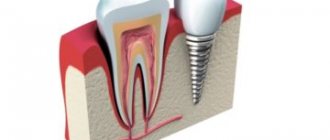Preparation for implantation always begins with the first consultation, where a panoramic image and computed tomography are taken, and then a treatment plan is developed - based on the images, the doctor will tell you in great detail about all possible treatment options in your case.
Each patient at the Smile-at-Once clinic is assigned an individual manager who accompanies them at every stage of treatment. We are in touch with you 24 hours a day, 7 days a week - you can ask any important questions and get answers to them!
If you decide to undergo implantation on the day of the first consultation, a detailed treatment plan is drawn up together with the doctor and manager, an agreement is concluded, and a date for tests is set (if they cannot be carried out on the same day). If you need to think and weigh everything, after making a decision, you can contact your manager or clinic administrator - we will give full recommendations on the further stages of treatment.
How is diagnostics carried out?
At the first stage, a computed tomography (abbreviated as CT) is performed. This is a study that allows you to obtain a three-dimensional image of the patient’s entire jaw system. Based on these data, the volume and quality of bone tissue, the position of the nerves and sinuses are assessed. The doctor will determine whether there are any pathologies of the jaw system that may become an obstacle to implantation (cysts, granulomas, foci of chronic periodontitis, etc.).
As a rule, we perform CT scans using our own diagnostic equipment.
Tomographs for dentists and specialized centers differ primarily in their resolution. Accordingly, the higher the magnetic field strength of the device, the more detailed the images will be and the more informative the research itself will be.
In most situations, the dental apparatus is more than enough: the teeth and jaw system are not kidneys or the brain, where a special configuration of sections and high resolution are required. But in difficult situations, if the doctor has to work not only with the jaw system, but also use other bones of the skull (in particular, the zygomatic bone), a more detailed and high-quality image is needed, and this can only be obtained with professional and more expensive diagnostic equipment. Therefore, in such situations, we refer the patient to a specialized diagnostic center to conduct CT and even MSCT (multispiral computed tomography).
Primary preparation
This is a set of measures that will prepare the oral cavity for future intervention. They are as follows:
- Initial examination. The doctor asks questions about your general health and examines your mouth. Based on the results of the examination, he issues referrals for laboratory tests and examinations, and refers to related specialists if necessary. The data is sent to the general practitioner, who draws up a report on the state of health.
- Actually tests before dental implantation and general examinations. This is necessary in order to exclude possible contraindications. Based on the diagnostic results, the therapist issues a conclusion and recommendations for surgery. If relative contraindications were identified during diagnostic measures, treatment is prescribed - the operation is performed only after the body has been restored.
- Diagnosis of the condition of the dental system: x-ray, computed tomography, orthopantomogram. The pre-dental implant examination is critical in planning and performing the procedure. Images of the jaws in three planes provide the specialist with information about the condition of the bone tissue, features of the maxillary sinuses, nerve canals, and mandibular joints. Knowledge about the parameters of bone tissue allows you to make the right decision - to assess whether its volume is sufficient. Based on the results of the examination, the doctor decides whether implantation can be performed or whether preliminary measures should be taken - for example, bone grafting (sinus lift, etc.).
Why take tests before dental implantation?
Our patients undergo blood and, in some cases, urine tests MANDATORY and FREE of charge before dental implantation - their cost is included in the price of dental implantation, especially when a comprehensive restoration is planned according to one of the “teeth in 1 day” protocols. Tests make it possible to assess the patient’s current health status, clarify blood clotting readings, and the presence or absence of viral or bacterial infections in the acute period.
After the tests, we are unlikely to refuse you dental implantation - when planning treatment, you already fill out a questionnaire that allows us to draw conclusions about the state of your health. But the tests will allow us to understand whether implantation can be carried out right now or whether it makes sense to postpone it for a while and put chronic diseases into remission.
We especially insist on testing for women over 50 years of age: an expanded complex is provided for them, since during this period it is necessary to take into account that some body functions work slightly differently. You can read more about the specifics of implantation in women in our special article.
An expanded list of tests is also provided if the patient plans to undergo implantation under general anesthesia or sedation.
Tips before taking tests
- Drinking water is not prohibited, as it does not affect the research results.
- It is better to take all tests in the morning, since blood levels in the body change significantly during the day.
- The doctor decides which test needs to be taken again.
- Laboratory standards are designed specifically for the morning hours.
- The day before donating blood, you should abstain from alcohol, if possible, physical activity and significant changes in your daily routine or diet.
- You should not smoke two hours before donating blood.
You should try to refrain from taking medications. This will help to achieve correct test results before implantation.
Should I see a therapist or other doctor?
We strongly ask our patients to approach filling out the health questionnaire responsibly - it is important for us to know how your body may behave during the operation to install implants and to provide for all the nuances. Therefore, you must tell your doctor in advance that you are registered with a specialized specialist, especially if you have diabetes and pathologies of the cardiovascular system. In this case, we will need a doctor's opinion on what stage the disease is at. You may also have to do an ECG, ultrasound of the thyroid gland, take allergy tests - everything is individual.
We perform implantation in cases of diabetes mellitus and problems with blood pressure or the cardiovascular system in general. But it is important that the disease is in the stage of compensation and remission. In addition, you definitely need to be in touch with your endocrinologist or cardiologist and know what medications you need to take before and after surgery.”
Namdakov Nikolay Vladimirovich, maxillofacial surgeon, implantologist, orthopedist with more than 16 years of experience make an appointment
Consultations with related specialists and other doctors
In some cases, the general practitioner may refer you for a consultation to another specialist - an endocrinologist, cardiologist, or ENT specialist. It is important to visit them to exclude contraindications to implantation and receive recommendations on further actions. Specialists may prescribe additional examinations - an ECG to exclude heart rhythm disturbances, nasopharyngeal smears to exclude the presence of pathogenic flora on the mucous membranes, etc.
Consultations with dentists of other specializations may be required in a number of cases:
- prolonged absence of teeth, changes in bite - visit an orthodontist;
- inflammatory diseases of periodontal tissues - a visit to the periodontist and drawing up a treatment plan;
- presence of teeth that cannot be treated, supernumerary teeth - visit a dental surgeon.
If, based on the results of diagnostic measures and consultations with specialists, no contraindications to implantation are identified, the doctor plans further preparations and schedules visits.
Why is photometry needed and what is condylography?
Photometry is the taking of photo parameters, simply - photographing with an open and closed mouth, with and without a smile, frontal and profile. Photographs are needed not only to evaluate the result before and after, but also to develop an individual denture.
When developing a prosthetic model, we use the principles of the “golden ratio” - the rules for dividing the face into segments. Thanks to prosthetics and implantation, you can restore your bite, get rid of wrinkles, and change the lower third of your face. That is, to make you more attractive.
Condylography is the measurement of parameters of occlusion (closing of the jaws) and the functioning of the temporomandibular joint; in fact, it is a functional diagnosis. Our clinic uses a HIP plane analyzer, a facebow and an articulator. Together, they allow you to assess how the entire jaw system will work after the installation of a denture, how you need to correct your bite and straighten the position of the two jaws relative to each other in order to relieve the load on the temporomandibular joint and allow you to chew without discomfort.
Of course, such a procedure is primarily necessary when a large number of teeth are complete or missing. With single restorations or if there are no malocclusions, such a diagnosis makes no sense.
Such parameters are taken twice – at the stage of preparation for dental implantation, and also after taking impressions before installing the prosthesis. In case of complete absence of teeth, as well as after their partial removal and fixation of implants, the bite changes slightly - this must be taken into account so that the prosthesis is comfortable throughout its entire service life.
The task of our doctors is to make not only beautiful dentures, but also to restore the function of the teeth. So that you can chew any food without pain and with pleasure.
Body examination
First of all, the doctor must make sure that the patient has no contraindications to the procedure.
To do this, the first step is to schedule a visit to the therapist, who conducts a general examination and prescribes tests for the patient. If any negative factors are detected, their treatment is prescribed, which can significantly delay implantation. Tests may or may not be mandatory, although it is usually recommended to carry out as many samples as possible - this will significantly increase the likelihood of success of the procedure.
Mandatory tests include:
- General blood analysis
- Protein analysis
- AlAT
- AST
- Hepatitis test
- HIV test
- Bilirubin
- /Na/CI/Ca
- And others
A complete list is usually provided by your dentist. Women are additionally prescribed TSH, estradiol, paracormon and T3 and T4 examinations. It is also highly recommended to test the amount of glucose in the blood to detect diabetes.
IMPORTANT: In addition to tests, it will be useful to visit a cardiologist and an allergist to completely make sure that there are no negative factors that could interfere with osseointegration.
Process planning and 3D modeling
After a CT scan and recording of all bite parameters, the patient goes home to prepare for implantation - this stage goes unnoticed for you. Meanwhile, one of the most difficult, but at the same time interesting periods begins for the doctor - visual modeling of the treatment process. All received data is loaded into a computer program, in which the implantologist recreates a model of the jaw system and parts of the patient’s cranial bones, carefully measures the locations for implants, determines their number, and even creates a prototype of the future prosthesis.
The key feature of our center is that in addition to computer visualization, we work out details on individual models. In complex cases, we print lithographic models on a 3D printer - in fact, these are copies of jaws and parts of the skull created from special plastic. Such “artificial bones” replicate the density of natural ones - the doctor implants the implants, evaluates their progress and deviation during positioning. Due to this, he takes into account all such nuances in advance, and not during the actual operation.
All of our implant surgeons have knowledge of orthopedics - it is impossible to carry out implantation in any other way, because the implants must be installed so that they are suitable for subsequent prosthetics. However, already at this stage, an orthopedic gnathologist must be involved - this is a doctor who creates prostheses, simultaneously correcting and restoring the functioning of the jaw joint.
What to consider before planning implantation
When deciding to undergo implantation, you should take your choice of clinic and doctor seriously. The success of the operation, the duration of treatment and the service life of the implants depend on the actions of the patient, but the professionalism of the clinic team plays a decisive role. It is better to consider 2-3 centers at once to compare and choose the best one. When visiting the clinic, you should pay attention to:
- Location. Choose a dentist that is easy for you to get to.
- Equipment. The clinic must be well equipped (for diagnosis, treatment, operations). Plus - the presence of a separate surgical unit and its own dental laboratory.
- Documentation. By agreeing to implantation, the patient signs an agreement with the clinic. Pay attention to the list of services that are included in the cost of implantation, guarantees, price, payment terms (should not change from the moment the contract is concluded). Discuss warranty periods and warranty cases.
- Price. Study the prices of several clinics. When you see a temptingly low price for implantation, you don’t need to be seduced. An operation involving the installation of high-quality implants, performed by a highly qualified implantologist, cannot be cheap.
- Reviews. Study opinions on clinic websites, forums, ask friends or relatives.
- Doctor's qualifications. The implantologist must have a diploma confirming higher education and advanced training certificates. It is better if the operation is performed by a maxillofacial surgeon.
- Comfort. Communication with an implantologist is long-term—the level of trust and approach are important. Choose a specialist whom you can trust with your health.
It is worth focusing on the predicted results of the operation. The doctor must choose the optimal solution to your problem. A professional does not sacrifice smile aesthetics for quality or vice versa, so do not settle for conflicting results.
How is the oral cavity prepared?
Before dental implantation, regardless of how many teeth are planned to be restored, it is necessary to prepare the entire oral cavity. It is very important to eliminate any inflammatory processes, since their development is provoked by microbes and bacteria that can get into the hole and thereby cause inflammation of the tissues around the implant. That is why the oral cavity should be as sterile as possible.
Treatment of caries, pulpitis
All inflammatory processes of periodontal tissues, dental diseases (caries, pulpitis, periodontitis) and even ordinary deposits on the enamel are nothing more than bacteria. This means that during implantation, they can get inside the wound and cause tissue inflammation. The risk of developing peri-implantitis and rejection of the structure increases. Therefore, it is very important to treat the teeth that are directly adjacent to the defect area, as well as on the opposite jaw, so that the surgical area is sterile. If a large number of teeth are destroyed, then, of course, it is advisable to cure them all.
Removing dental plaque
Cleaning before implantation is also a mandatory preparation step. As with tooth decay, plaque and tartar can cause inflammation. The cleaning is carried out deep, that is, deposits are necessarily removed from under the gums. Therefore, if there is a need, gum curettage is prescribed instead of the traditional hygiene complex.
Are there any contraindications?
Implantation itself is a fairly safe and uncomplicated procedure, but for some people it is strictly not recommended. There are both absolute contraindications, which completely exclude the possibility of surgery, and relative, which are only a temporary obstacle to a healthy and beautiful smile.
Absolute
- complex autoimmune diseases, such as rheumatoid arthritis;
- AIDS;
- diabetes mellitus 2nd degree;
- nervous system problems;
- addiction;
- alcohol abuse;
- dysfunction of the thyroid gland;
- malignant tumors;
- renal failure;
- diseases of the heart and blood vessels;
- allergic reactions to most anesthetics.
Depending on the stage of a particular disease, the doctor may agree or refuse to perform an operation to install implants, taking into account possible complications and the degree of risk of rejection.
Relative
If some diseases are eliminated in time, then there will be no restrictions on the operation to restore teeth. These include:
- Irregular cleaning of the oral cavity;
- presence of bad habits;
- constant stress;
- presence of sexually transmitted infections;
- the presence of periodontitis or periodontal disease;
- weakened immune system due to recent vaccinations.
previous post
Temperature after dental implantation
next post
Do I need to remove teeth before getting dental implants?
This is a very painful and pressing question that many patients ask. It is relevant only for those situations where most of the dentition is missing - for example, chewing teeth on both sides, and the front ones are preserved in fairly good condition (according to the patient himself). Of course, you don’t want to lose them, but placing implants in the area of the lateral teeth, especially against the background of an inflammatory process, is completely pointless - there is a high risk of their rejection due to inflammation and increased mobility.
Remember! It is not the patient who evaluates the condition of the teeth, but the attending physician! You may not see micromobility, you may not know that you have an average or even advanced stage of periodontitis. You think your teeth look good, but they will be much more trouble than real benefit.
Remember that teeth are a source of infection. It is on them, on their porous surface, that a huge number of pathogenic microorganisms accumulate. That is why, if periodontitis exists, it is impossible to get rid of it - you can only slow down its development.
What do you RISK if you DO NOT remove living teeth?
What do you RISK if you DO NOT remove living teeth?
| Bad breath | It will not go away, because inflammation persists, even if it is transferred to the stage of relative remission. |
| Risk of implant rejection | The risk of developing peri-implantitis increases, both in the short and long term. Inflammation can spread to the tissue around the implants, leading to their rejection. |
| Bone loss and again implant rejection | Periodontitis has no cure, so bone loss in the area of living teeth will progress. Yes, this process can be long, and right now there are no signs of trouble, only “the roots are a little exposed,” patients say. But this means that the bone is already shrinking and losing its density. Our jaw system is designed so that all teeth support each other. As soon as at least one tooth loses its fixation, this affects the neighbors. By installing implants near moving teeth, the implantologist in advance dooms the structure to problems in the future. The chewing load will be distributed incorrectly and displacement of the implants may occur. The bone will also decrease around adjacent implants, which will lead to exposure of their tops. Likewise, if the teeth were previously treated and if there was a cyst, in such situations there is already little bone initially and the loss will increase. |
| Development of gastrointestinal problems | When there is a source of infection in the oral cavity (even if it is just plaque or stone), all pathogenic bacteria certainly enter the stomach along with food. Take care of yourself: if you have problems with your teeth, how does your digestive tract react to this? There is probably pain, discomfort, bloating, and increased gas formation. |
| Development of pyelonephritis | Some bacteria that cause periodontitis contain antigens that are similar to kidney and heart tissue cells. Therefore, as soon as our immunity begins to fight inflammation, it automatically affects the kidney tissue and destroys them... This is why the connection between the presence of inflammation in the oral cavity and the development of both pyelonephritis and pathologies of the cardiovascular system has been proven. Even if the disease is in a sluggish form. |
By preserving living teeth with periodontitis, we risk losing the entire structure on implants!
Last day before surgery
Implantation is a complex surgical intervention that requires thorough preparation. The preparatory stage can last for several weeks and includes the following steps:
- examination of the oral cavity, visual assessment of the condition of the mucous membranes and teeth,
- examination by a therapist, general tests,
- based on the medical history obtained, the therapist or dentist can refer the patient for a consultation with specialized specialists (endocrinologist, immunologist, neurologist, allergist),
- if prosthetics are planned to be carried out on the upper jaw, the patient must consult an otolaryngologist (the maxillary sinuses are located close to the tissues of the oral cavity).
A panoramic photograph of the jaw allows one to assess the condition of the bone tissue. - a panoramic image (orthopantomogram) is required to assess the condition of the bone tissue,
- sanitization of the oral cavity (at the time of implantation, the mouth should be free of any foci of inflammation, carious teeth and other diseases),
- exclusion of absolute contraindications,
- computer modeling of all stages of prosthetics (if the clinic has the necessary equipment and software).
At this stage, relative and absolute contraindications are identified, and a decision is made regarding the implantation method and the implant system used. Relative contraindications are not a reason to refuse surgery. Once the cause has been eliminated, you can safely place an implant.
In the remaining 24 hours before the scheduled date, be sure to:
- thoroughly clean teeth, mucous membranes and tongue from any deposits and plaque;
- do not drink any alcohol;
- do not engage in physical activity, sports or hard work;
- do not experiment with food;
- completely eliminate or limit the intake of medications as much as possible;
- Rinse your mouth with an antiseptic three times a day.
If you moved from another climate zone before implantation, you should definitely give your body 1-2 days to adapt. Perhaps the doctor will prescribe antibacterial drugs, which you need to start using even before surgery.
On the day of the procedure, refrain from eating; just drink tea. But if implantation is carried out in the afternoon, then a light breakfast is allowed.
Is it possible to restore teeth on only one jaw?
It is possible, but the doctors at the Smile-at-Once clinic do not practice this. Yes, we can restore only one jaw, but the teeth will not have antagonists, that is, support. And it's not just that you won't be able to chew. The problem is much more serious - we will not have the conditions to create a fully functioning and properly functioning jaw system.
Firstly, if a tooth is missing on the opposite jaw, the living teeth can literally shift and even fall out of the socket. Indeed, over time, due to the lack of chewing pressure on them, blood circulation deteriorates, and the bone tissue, along with the periodontal ligaments, weakens. It’s the same with implants - they have no support, the crowns of the prosthesis have nothing to come into contact with unless the antagonists are restored. Nutrition of bone cells, which is so important for implant healing, is difficult due to impaired blood circulation.
Secondly, if you left some of your teeth, then with a 99% probability they have changed their original position - due to periodontitis, due to malocclusion, due to loss of bone tissue. That is, they moved sideways and definitely became shorter/longer (this is individual). In such a situation, we again cannot always restore the correct position of the two jaws relative to each other.
We need an integrated approach! If you are currently only ready to undergo implantation on one jaw, do not ignore the second. For a while, we can install a removable or conditionally removable denture - this will allow us to straighten the bite, ensure normal functioning of the jaw joint - you will be able to chew and enjoy your new teeth. Otherwise, you will understand that after implantation almost nothing has changed - only the smile has become beautiful, but the problems continue.
The importance of sanitation
Sanitation of the oral cavity is the primary condition for excellent health and the absence of inflammatory processes after implantation. Sanitation includes treatment of caries, any inflammatory processes of the gums, tongue, and the entire oral cavity.
Proper teeth cleaning will allow you to identify all dental problems that may affect the healing process after implant installation, the well-being and speed of recovery of the patient, the quantity, timing and quality of medications taken after surgery, painkillers and other necessary procedures.
Everyone has been told since childhood that they need to brush their teeth, but for some reason people often forget they need to promptly identify and treat any oral problems
More precisely, not about treatment, but about timely visits to the doctor, professional cleaning every six months and preventing problems from arising.
Sanitation is necessary not only during implantation, but also before any non-emergency surgery and even before childbirth.
Sanitation is a kind of guarantee that such an important process as eating will not negatively affect a weakened body and will not deliver pathogenic bacteria from the oral cavity to the operation area through the bloodstream.
Recommendations for the patient: what to do before the operation to install implants
So, all the stages of preparation and planning have been completed, the date for installing the implants has been set, all that’s left to do is sleep, eat and get ready for the speedy completion of the treatment, after which you will find a beautiful smile and will finally be able to eat without pain. And those products that you really want, and not just can chew.
Please charge your phone fully so that after surgery you can contact your loved ones and stay in touch with your doctor. You can also leave your phone at the reception desk - after the operation it will be completely ready for communication.
It is advisable to arrive at the clinic 20-30 minutes before the start of the operation. Please do not be late, especially if general anesthesia or sedation is planned. We may have several operations on one day, and between them we need to have time to prepare the operating rooms.
What can you eat
- 2-3 days before surgery, it is advisable to follow a “light” diet - remove fatty, salty, fried, and rich foods from the diet. It is better to give preference to chicken, vegetables and fruits (apples, pears), fish, dairy products,
- do not drink coffee, tea, or alcohol for 2-3 days, as they provoke sudden changes in blood pressure - this can lead to bleeding after surgery,
- eat 2 hours before surgery. DO NOT overeat! Light but filling lunch/breakfast. This could be eggs, a small piece of meat and steamed vegetables, various cereals. Eat complex carbohydrates as they keep you full for a long period of time. If general anesthesia is planned, you should not eat 4 hours before
- You can only drink water before surgery. But if general anesthesia is planned, then stop taking any liquids 4 hours before surgery.
How to dress
- Wear light clothing that does not restrict movement. You can take with you a warm jacket with a zipper or buttons in the front so that you can simply take it off (not over your head) or throw it on if it gets cold,
- It is advisable that clothing be sleeveless, since installing implants is a surgical operation and although protective aprons are used, clothing can become dirty,
- It is advisable for women not to wear makeup or to wash it off at the clinic. You especially need to give up lipstick. During installation of the implants, a protective balm will be used to prevent dry lips,
- You should not paint or extend your nails, since special infrared sensors placed on the fingers are used to monitor the respiratory function and the patient’s condition during implantation. Varnish, acrylic and gel coatings can impede data transfer. Moreover, anesthesiologists monitor the effect of anesthesia and the patient's condition by observing the nail plates.
How to perform hygiene
- immediately before the operation, brush your teeth well with a brush and toothpaste, use an irrigator,
- immediately before leaving the house, that is, after eating, rinse your mouth with a solution of Chlorhexidine, Miramistin or any other antiseptic.
Do I need to take medications?
- necessary if they were prescribed to you by your attending physician,
- It is important that blood pressure readings are within normal limits. If you know that your blood pressure will rise as soon as you cross the threshold of a clinic or implantologist’s office, discuss this with your doctor in advance: together you will choose the optimal dose of the drug and determine how long before surgery it is best to take it,
- We also recommend that patients with panic fear breathe xenon before surgery - this is a useful medical gas that will relax, lift your spirits, and improve the general condition of the body. Read more about xenon therapy here.
- it is also necessary to maintain normal blood sugar levels - take all prescribed medications as prescribed by the endocrinologist,
- prohibited: anticoagulants, aspirin and drugs based on it, non-steroidal anti-inflammatory drugs and blood thinners. All of them increase the risk of postoperative bleeding,
- During preparation for implantation, you cannot undergo intensive therapy for the treatment of other diseases (hepatitis, cancer, tumors) associated with taking a large number of medications or radiation.
WHAT SHOULD BE IN YOUR HOME from medicines
When you return home, you will feel weak and have difficulty concentrating. Therefore, we strongly recommend that you prepare in advance - check out our useful reminder so you don’t forget to buy anything in advance.
- at the pharmacy: buy all the tablets and solutions for oral baths in advance - especially for painkillers. All recommendations will be given to you by the attending physician even before the operation. Also in your first aid kit you should have a thermometer to measure and control body temperature, a sterile bandage or napkin to apply to the wound area and stop bleeding,
- There should be a supply of ice in the freezer to reduce the risk of swelling. If swelling occurs, ice will help reduce its spread.
WHAT SHOULD BE FOOD AT HOME
- what to buy in the store: soft cottage cheese, various yoghurts, you can buy baby food in jars - give preference to meat products and vegetables. In the first 2 days, if you do not receive dentures immediately, your diet will consist exclusively of liquid and puree foods,
- What to cook at home: make your own broth. This can also be a regular soup, but it is better to use a blender before using it. On the first day, you can also afford mashed boiled vegetables and soft baby food. IMPORTANT! All food should be warm - neither hot nor cold,
- what you can drink: water is a priority, but you can indulge in warm herbal tea, especially one that has a sedative effect on the nervous system. Be sure to buy a straw - if you need stitches, you're better off eating this way.
Prepare a sleeping place in advance, stock up on interesting films or favorite music - they will help distract you on the first day after surgery and not focus on every sensation. The body has suffered stress and the tissues begin to rehabilitate – discomfort is normal. You will find a more detailed list of how to care for your oral cavity, how to eat, which symptoms are normal, and which should see a doctor in our post-implantation leaflet.
Checklist: check yourself!
| What to buy at the pharmacy | What to buy in the supermarket | What to cook at home |
|
|
|
We have quite a lot of recommendations on how to prepare for dental implantation. But we tried to take into account as much as possible so that you don’t forget anything. You can download our checklist and check yourself so that when you return after surgery, you have everything you need not only in stock, but also at hand. And remember, dental implantation is an operation that is sometimes even easier than complex tooth extraction. The main thing is a positive attitude and compliance with the instructions!
Last day before surgery
Neglecting a thorough diagnosis and examination before implantation can lead to complications and unpleasant consequences:
- smoking and drinking alcohol leads to inflammation of the gums around the implant,
- implantation provokes the growth and progression of malignant neoplasms in the oral cavity,
- problems with blood clotting can cause bleeding during and after surgery,
- pathologies of the immune and endocrine systems increase the risk of implant rejection,
- Pathological changes in bone tissue are a serious obstacle to reliable implant fixation.
The duration of the preparatory stage depends on the condition of the oral cavity and the presence of concomitant diseases. After an examination and medical history, the specialist draws up a detailed prosthetic plan, informing the patient about each upcoming stage.
Why prepare?
The most unpleasant thing that can happen to a patient who decides to undergo dental implantation is the rejection of the rod, the destruction of bone tissue to a state where subsequent implantation has too little chance of success. It turns out that effort and money are wasted, and the choice is limited to removable dentures or bridges. To prevent this from happening, it is important to do everything possible to prevent the chance of developing reimlantitis or other complications.
List of important and minor studies
A decade before the day of surgery, the clinic will require many types of tests. Full list:
- complete blood count, ESR, leukocytes;
- blood for sugar;
- blood for clotting, prothrombin, fibrinogen;
- blood for glucose, amylase levels;
- total bilirubin, direct;
- syphilis, hepatitis, HIV;
- cholesterol;
- ALT, AST;
- for the content of potassium, sodium, chlorine and calcium;
- total blood protein;
- alkaline phosphatase;
- creatinine;
- urea;
- General urine analysis (sediment microscopy).
Mandatory items from this list for any medical intervention are: blood for coagulation, general blood test, blood type and Rh factor, HIV, hepatitis, syphilis.
Regarding the appointment of all the others, you can ask the doctor, he will definitely tell you what they will look at and why. In addition to blood and urine tests, an ECG may be required, but this, again, is a special case.
Women may also be advised to additionally test some hormones: TSH, T4, T3, estradiol, parathyroid hormone.
Any tests, except the mandatory ones, can be discussed with your doctor, but you should not doubt the prescription. Each of them will help to more fully present the picture of the operation and minimize the period of wound healing, implant engraftment, and reduce the waiting time for a perfect smile.
